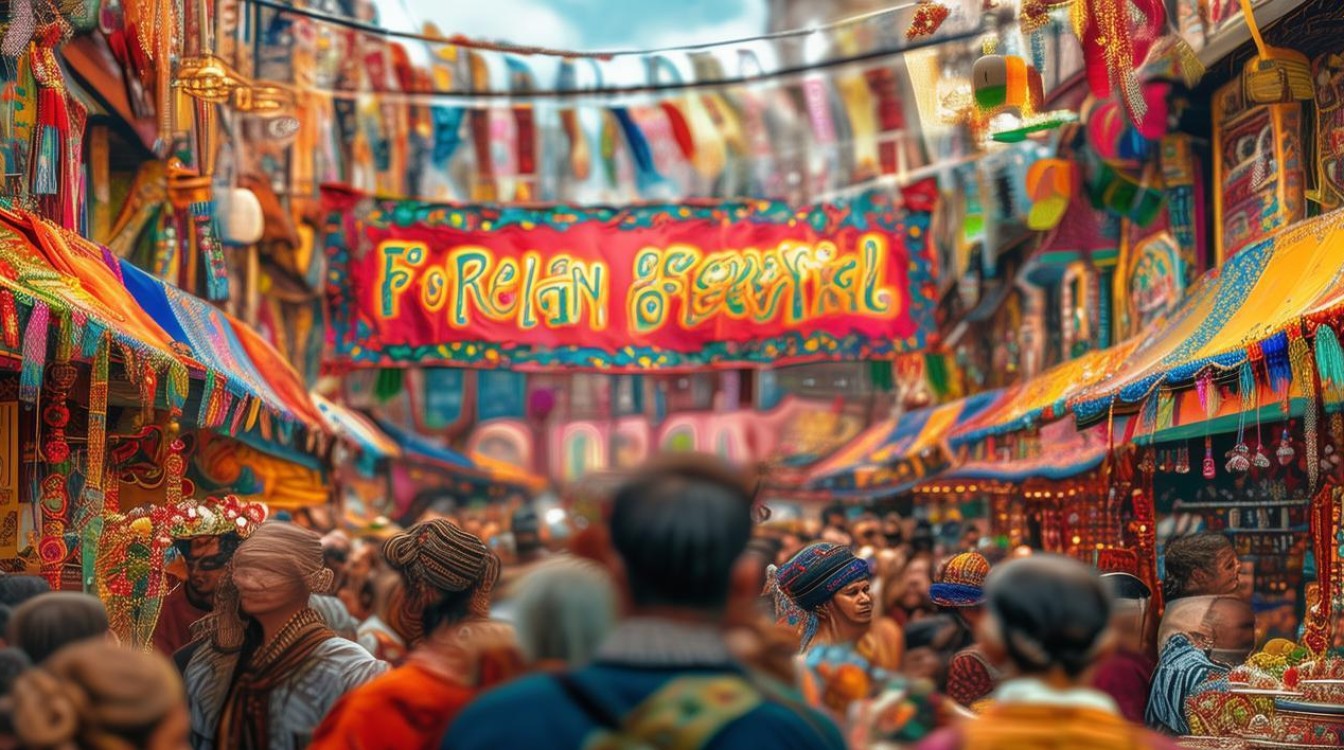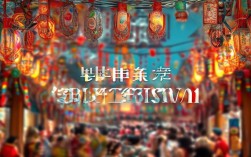Of course! Talking about a foreign festival is a very common topic in IELTS Speaking, often appearing in Part 1 (hometown/festivals) or Part 2 (a festival you enjoy). Here’s a comprehensive guide to help you structure your answer with high-level vocabulary and natural expressions.

核心思路
-
Choose a good festival: Pick one you know well. Don't just pick a famous one like Christmas if you have nothing interesting to say. Good examples include:
- Halloween (西方): Fun, creative, has a clear theme of costumes and candy.
- Diwali (印度): Known as the "Festival of Lights," rich in cultural and religious meaning.
- Songkran (泰国): The "Water Festival," very visual and fun to describe.
- Oktoberfest (德国): Associated with beer, food, and tradition.
- Hanami (日本): Cherry blossom viewing, very aesthetic and philosophical.
-
Structure your answer: Use a clear structure. A great method is the "What, When, Where, Why, How" framework.
- What: What is the festival? Give it a name and a brief description.
- When: When does it take place?
- Where: Where is it celebrated?
- Why: What is its origin or significance? (This is key for a high score).
- How: How do people celebrate? Describe the activities, food, atmosphere, etc.
-
Use descriptive language: Don't just list facts. Use adjectives, adverbs, and sensory details (sights, sounds, smells, feelings).
Part 1: Sample Questions & Answers
Q: Do you like celebrating foreign festivals?
A:
"Absolutely, I find them absolutely fascinating. I think festivals are a fantastic window into a country's soul, and experiencing foreign ones, even if just through videos or articles, is a great way to broaden my horizons. It's not just about the fun; it's about understanding the history, values, and creativity of other cultures."
Tips for this answer:
- Strong opening: "Absolutely," "Definitely."
- Idiomatic language: "a window into a country's soul," "broaden my horizons."
- Show depth: It's not just "fun," it's about "history, values, and creativity."
Q: What's the most famous foreign festival in your country?
A:
"I'd say Halloween is probably the most well-known and widely celebrated foreign festival here, especially among the younger generation. While it's not a traditional holiday, you can see decorations, costumes, and trick-or-treating in many urban areas and shopping malls. It's become quite a commercial event, but it's still a lot of fun and gives people a chance to be creative and social."
Tips for this answer:
- Be specific: Name the festival (Halloween).
- Add detail: Mention the target group ("younger generation").
- Show nuance: Acknowledge it's "not traditional" but has become "commercial."
Part 2: Cue Card & Sample Answer
This is where you can really showcase your skills.
Cue Card:
Describe a foreign festival that you would like to attend. You should say:
- what festival it is
- where it is celebrated
- what people do during this festival
- and explain why you would like to go to this festival.
Sample Answer (using Songkran, the Thai Water Festival):
(Introduction - What & Where) "If I could choose any foreign festival to attend, it would undoubtedly be Songkran, which is the traditional Thai New Year, famously known as the Water Festival. It's celebrated every April, from the 13th to the 15th, all across Thailand, but the epicentre of the festivities is undoubtedly in the capital, Bangkok. It's a festival that's completely immersive and looks like an absolute blast."
(Body Paragraph 1 - What people do) "The core idea of Songkran is all about washing away the misfortunes of the past year to welcome a fresh start with good luck. This is symbolised by the water activities. For the locals, it starts respectfully in the morning with people visiting temples to pour scented water over Buddha images and the hands of elders as a sign of respect and blessing. But as the day progresses, it transforms into a massive, city-wide water fight! The streets turn into a huge, joyous battlefield where everyone, armed with water guns, buckets, and hoses, playfully drenchs each other. The atmosphere is electric, filled with laughter, music, and the constant sound of splashing water. It’s less about aggression and more about a collective, carefree celebration of life and community."
(Body Paragraph 2 - Why you want to go) "I would absolutely love to experience Songkran for several reasons. Firstly, the sheer scale and energy of it are something you just can't find anywhere else. It’s not just a party; it's a deeply ingrained cultural tradition that everyone participates in. Secondly, I think it represents a beautiful philosophy. In our often stressful and busy lives, having a festival dedicated to pure, unadulterated fun and letting go is incredibly appealing. It’s a powerful reminder to be present and joyful. Finally, I'm fascinated by the sense of community it fosters. It breaks down social barriers as strangers and friends alike share in this wet, wild, and wonderful experience. It would be an unforgettable adventure."
Tips for this answer:
- Fluency & Coherence: Uses linking words like "undoubtedly," "firstly," "secondly," "finally," "moreover."
- Vocabulary: Uses high-level words like "undoubtedly," "epicentre," "immersive," "misfortunes," "symbolised," "festivities," "electric," "collective," "unadulterated," "fosters."
- Grammar: Mixes sentence structures (simple, compound, complex). Uses a range of tenses (present simple for facts, past for description, conditional for "why").
- Pronunciation: The answer is written to be spoken with natural intonation and stress on key words (e.g., undoubtedly, absolute blast, electric).
Part 3: Follow-up Questions & Ideas
Q: Do you think it's a good idea for countries to adopt foreign festivals?
A:
"That's a really interesting question. On one hand, I think it can be a fantastic form of cultural exchange. It introduces people to new traditions, promotes tolerance, and can be economically beneficial for tourism. However, there's a potential downside. If a festival is commercialised without any understanding of its original meaning, it can become superficial and even disrespectful. The key is to approach it with genuine curiosity and respect, rather than just treating it as another excuse to party or shop."
Q: How are festivals changing nowadays compared to the past?
A:
"Well, there are a few significant changes. Firstly, globalization means many festivals are becoming more international. For example, you can now find Oktoberfest celebrations in Asia or Halloween parties in small towns everywhere. Secondly, technology has had a huge impact. Social media allows people to share their festival experiences globally in real-time, but it can also make events feel more staged for an online audience rather than being a genuine, in-the-moment experience. Finally, there's a growing trend towards 'festivalisation,' where local traditions are packaged into more marketable, tourist-friendly events, which can sometimes dilute their original authenticity."
Useful Vocabulary & Phrases
Nouns:
- Significance / Importance: meaning, purpose, cultural value
- Activities: rituals, traditions, customs, celebrations, festivities
- Atmosphere: vibe, ambience, energy, excitement
- Food & Drink: delicacies, cuisine, traditional dishes, refreshments
Adjectives:
- Positive: vibrant, lively, colourful, festive, joyous, spectacular, magnificent, immersive, unique, profound
- Neutral: traditional, cultural, annual, symbolic
- Describing Atmosphere: electric, bustling, chaotic, serene, solemn
Verbs:
- General: celebrate, observe, commemorate, honour, mark, participate in
- Specific: dress up (as), light up, decorate, feast on, fast, parade, splash, drench
Idioms & Phrases:
- A window into another culture
- To immerse oneself in a tradition
- To broaden one's horizons
- A sense of community
- A collective experience
- Deeply ingrained tradition
- Letting go of the past
- Superficial vs. authentic experience
- Cultural exchange
By using this structure and vocabulary, you can build a comprehensive, impressive, and fluent answer for any question about foreign festivals in your IELTS Speaking test. Good luck











